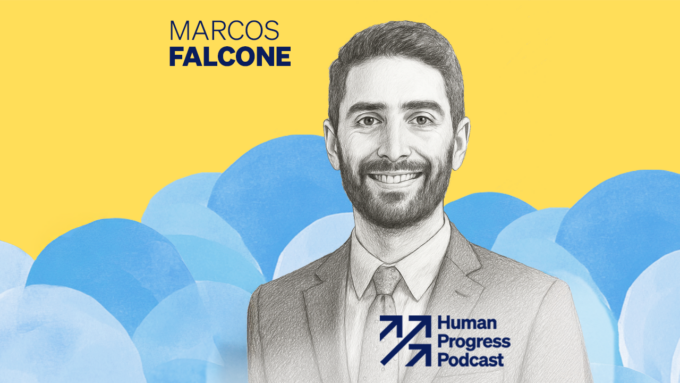The 2010s have been the best decade ever. The evidence is overwhelming. Start with the United Nations Development Report. Framed as a warning about inequality, it plays down the good news: “The gap in basic living standards is narrowing, with an unprecedented number of people in the world escaping poverty, hunger and disease.”
The World Bank reports that the world-wide rate of extreme poverty fell more than half, from 18.2% to 8.6%, between 2008 and 2018. Last year the World Data Lab calculated that for the first time, more than half the world’s population can be considered “middle class.”
Health progress has been remarkable. People have better access to water, sanitation, health care and vaccines than ever. The incidence of malaria in Africa declined almost 60% from 2007 to 2017, and antiretroviral therapy reduced HIV/AIDS deaths more than half.
Global life expectancy increased by more than three years in the past 10 years, mostly thanks to prevention of childhood deaths. According to the U.N., the global mortality rate for children under 5 declined from 5.6% in 2008 to 3.9% in 2018. A longer perspective shows how far we’ve come. Since 1950, Chad has reduced the child mortality rate by 56%, and it’s the worst-performing country in the world. South Korea reduced it by 98%.
Hasn’t this all come at the cost of a despoiled environment? No. At a certain point developed countries start polluting less. Death rates from air pollution declined by almost a fifth world-wide and a quarter in China between 2007 and 2017, according to the online publication Our World in Data.
Rich countries use less aluminum, nickel, copper, steel, stone, cement, sand, wood, paper, fertilizer, water, crop acreage and fossil fuel every year, as Andrew McAfee documents in More From Less. Consumption of 66 out of 72 resources tracked by the U.S. Geological Survey is now declining.
Global warming remains a challenge, but wealthy societies are well-positioned to develop clean technologies and to deal with the problems of a changing climate. Annual deaths from climate-related disasters declined by one-third between 2000-09 and 2010-15, to 0.35 per 100,000 people, according to the International Database of Disasters—a 95% reduction since the 1960s. That’s not because of fewer disasters, but better capabilities to deal with them.
Progress isn’t guaranteed. Look how wealthy Venezuela collapsed under the burden of crazy policies. A war between major powers, or a financial crash after a decade of easy money, could throw the world off course. So could never-ending trade wars and an unraveling of globalization.
Yet we’ve lived through a period of populist revolts and geopolitical tensions, and wherever societies have been open and markets free, scientists, innovators and businesses persisted and made greater progress than ever.
That’s the case for optimism. Tin-pot strongmen, looting politicians and punctilious bureaucrats make mischief with societies and economies. But mankind creates faster than they can squander, and repairs more than they can destroy.
This originally appeared in WSJ Commentary.





